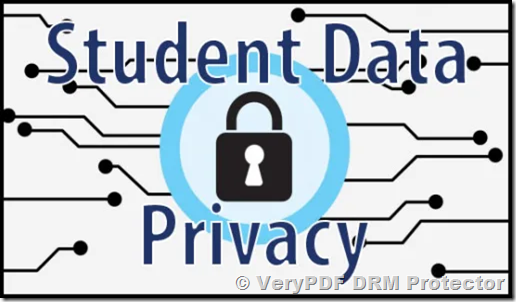The global shift toward digital learning, which has gained significant momentum due to the COVID-19 pandemic, has greatly impacted the education sector. Technologies such as cloud-based file-sharing, collaboration tools, and e-learning platforms are transforming how institutions engage with students, improve educational experiences, and optimize operational efficiency. However, the digital transformation has also brought with it an increasing responsibility to safeguard student data.
With educational institutions collecting more data than ever before, it’s imperative to ensure compliance with evolving data privacy regulations. In this article, we delve into the importance of compliance in the educational sector and explore key data protection laws that directly affect schools, colleges, universities, and e-learning providers.
What Is Data Privacy Compliance?
Understanding compliance is essential to maintaining the integrity and security of personal data. Often confused with related concepts such as data privacy, data protection, and cybersecurity, compliance has its own distinct definition:
- Data Privacy: The legal responsibility to protect individuals’ personal data. It covers how personal information is collected, stored, shared, and accessed.
- Cybersecurity: The measures taken to protect computer systems and data from unauthorized access, attacks, or theft (e.g., firewalls, encryption).
- Data Protection: The technical and organizational practices implemented to prevent data loss, corruption, or compromise, ensuring business continuity.
- Compliance: Conforming to legal requirements regarding how data is handled and safeguarded by an institution or organization.
For educational institutions, compliance means adhering to the various laws and standards in place to protect student data and privacy.
Key Data Privacy Laws Affecting Education
Data privacy regulations vary across regions and can be complex to navigate. Below are three critical laws impacting the education sector:
1. Family Educational Rights and Privacy Act (FERPA)
In the United States, the Family Educational Rights and Privacy Act (FERPA) governs the access and disclosure of students’ educational records. FERPA applies to all educational institutions that receive federal funding and grants parents the right to access their children’s educational records. These rights transfer to the student once they turn 18, at which point the student must give consent for any disclosures.
FERPA covers a broad range of personally identifiable information (PII), including student names, grades, and behavioral records. It requires schools to notify parents and students if they plan to release such information and gives them the opportunity to object.
2. General Data Protection Regulation (GDPR)
The General Data Protection Regulation (GDPR) is a comprehensive European Union regulation that came into effect in 2018 to harmonize data privacy laws across EU member states. The GDPR applies not only to EU-based institutions but also to any organization handling the data of EU citizens, including universities outside the EU and e-learning providers.
The GDPR emphasizes transparency, individual rights, and data minimization. It grants individuals greater control over their data, including the right to request access, rectification, or erasure of their personal information. Educational institutions must obtain explicit consent before processing student data for non-educational purposes, especially when students are under 16.
3. California Consumer Privacy Act (CCPA)
The California Consumer Privacy Act (CCPA) is a landmark law in the United States aimed at protecting the privacy rights of California residents. While similar to the GDPR in some ways, the CCPA focuses more on the sale of personal data. It mandates that businesses seek explicit consent from consumers before selling their personal information.
For educational institutions, CCPA is particularly relevant for organizations offering services to California residents or processing student data. It also grants students the right to access their data, opt out of data sales, and request deletion of their information.
Key Features of Privacy Legislation
Several core principles define how data must be handled under various privacy laws. Here are some key areas of focus for educational institutions:
1. Data Collection
Under the GDPR, educational institutions must limit their data collection to what is necessary for their educational duties. For non-essential purposes, such as marketing, explicit consent is required. In the case of minors, parents or guardians must give consent for data processing.
In contrast, the CCPA does not require prior consent for data collection, except when data is sold. However, educational institutions should be mindful of the requirement to provide transparency about their data practices.
2. Privacy and Consent Notices
Transparency is a cornerstone of data privacy laws. Schools, colleges, and e-learning providers must present clear privacy notices explaining their data collection and processing activities. These notices should:
- Clearly identify the institution
- Specify what data is collected
- Explain why the data is needed
- Outline students’ rights and how they can exercise them
For younger audiences, such as K-12 students, privacy notices should be written in simple, accessible language.
3. Data Security
To comply with data privacy laws, educational institutions must adopt robust security practices to protect personal data from breaches, leaks, and unauthorized access. These practices include:
- Regular software updates and patching
- Strong password policies
- Limited access to sensitive data
- Staff training on data security and privacy
For institutions outsourcing IT services, it’s vital to ensure that third-party providers follow the same security standards.
4. Data Transfers
The GDPR imposes strict regulations on transferring personal data outside of the European Economic Area (EEA). Educational institutions and e-learning providers must ensure that adequate safeguards are in place to protect data when it is transferred internationally. This may involve using cloud services that comply with the necessary legal frameworks.
The CCPA, on the other hand, does not impose similar restrictions on international data transfers.
5. Right of Access
Both the GDPR and CCPA grant individuals the right to access their personal data. Educational institutions must provide copies of personal data upon request, along with information on how the data is being processed, any third parties involved, and the data’s source. Institutions must respond to such requests within a specified timeframe, typically 30 days under the GDPR and 45 days under the CCPA.
Tools for Ensuring Compliance
Given the complexity of data privacy regulations and the vast amounts of data educational institutions collect, it’s crucial to leverage tools that provide visibility and control over personal data. Tools like VeryPDF DRM Protector can help institutions monitor data usage, enforce security measures, and ensure compliance with privacy regulations. By integrating such tools, institutions can ensure that they meet the requirements of GDPR, CCPA, FERPA, and other relevant laws.
Conclusion
With the growing reliance on digital tools and platforms in education, complying with data privacy regulations is more important than ever. Educational institutions must stay informed about evolving laws and implement best practices to protect student data. By prioritizing data privacy and security, schools and universities can build trust with students, parents, and faculty while avoiding costly fines and reputational damage.
Compliance is not just about avoiding penalties—it’s about creating a culture of privacy and trust that benefits all stakeholders in the educational ecosystem.

